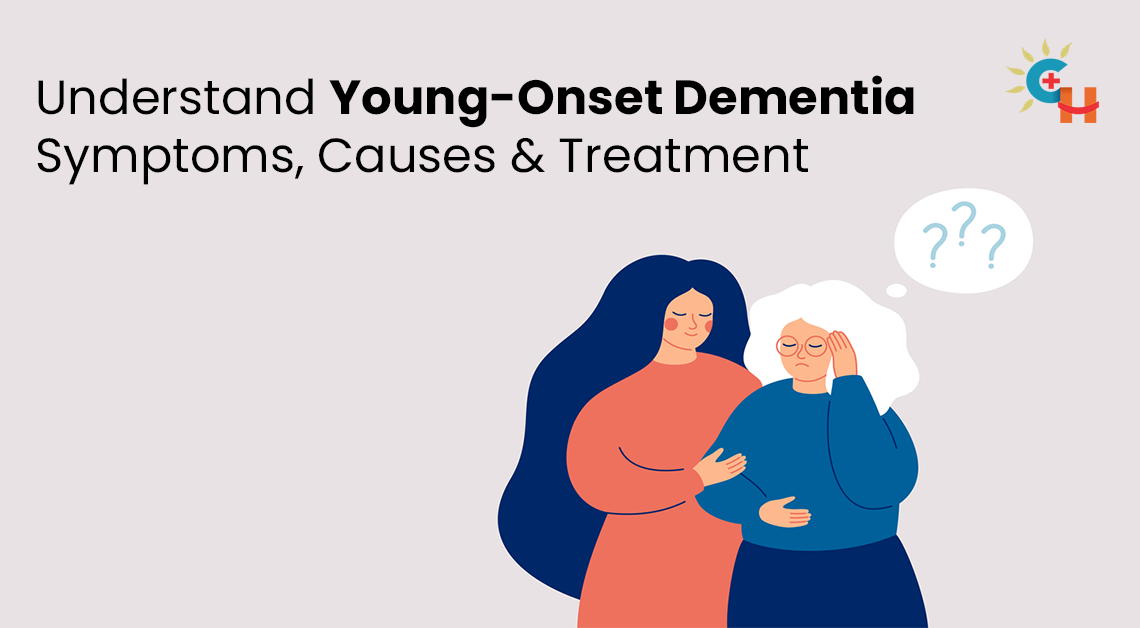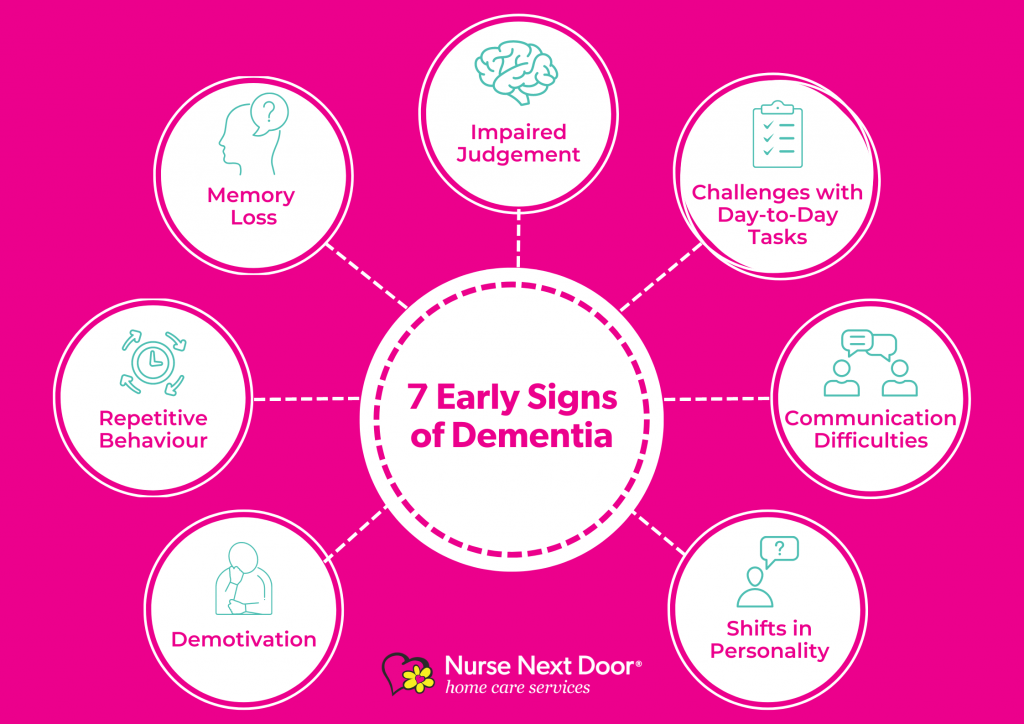How to Support a Partner Diagnosed With Frontotemporal Dementia
Wiki Article
Recognizing the Impact of Mental Deterioration on Life and Caregiving
Dementia affects every day life in extensive ways, impacting not simply those identified yet likewise their caretakers. As cognitive decline proceeds, you may observe modifications in interaction and regular that challenge both celebrations. Comprehending these changes is crucial for preserving dignity and involvement. Exactly how do you adjust your caregiving approaches to support a person traversing this complex trip? The answers could amaze you as we explore the nuances of this experience.The Phases of Mental Deterioration and Their Effects on Day-to-day Live
As you navigate the trip of dementia, comprehending its stages can substantially influence just how you take care of every day life. Dementia commonly advances with 3 primary stages: early, center, and late. In the beginning, you may observe occasional memory gaps or trouble finding the ideal words. This can lead to aggravation, but identifying these indications early helps you adapt your regular and seek support.Throughout the center stage, you'll experience extra recognizable cognitive decrease. Daily jobs may end up being difficult, and preserving your independence may require changes. Making use of suggestions and streamlining your setting can aid.
In the late stage, individuals commonly require considerable support with everyday activities. Planning for treatment comes to be essential, focusing on comfort and lifestyle. By comprehending these stages, you're better furnished to react proactively, ensuring you or your loved one can browse the challenges with self-respect and elegance.

Adjustments in Interaction and Social Communication
Exactly how do modifications in communication influence your daily communications as mental deterioration progresses? As mental deterioration developments, you could discover that straightforward discussions come to be difficult. Words may leave you, or you might have a hard time to find the right phrases. This can lead to stress for both you and your loved ones. Nonverbal cues, like gestures or faces, become progressively crucial.You may locate it easier to link through these means as opposed to counting entirely on spoken language. Paying attention skills can additionally alter; you may find it more difficult to comply with discussions or keep in mind what was simply said (Fall Risk). This can result in misunderstandings or sensations of seclusion
Encouraging persistence and creating a helpful setting can assist. Taking part in activities that promote link, like music or art, can improve social communications. Remember, preserving partnerships is still possible; it's nearly adjusting to brand-new ways of interacting.
Influence on Daily Routines and Activities
While navigating daily regimens, you'll likely notice that tasks you as soon as completed effortlessly come to be extra difficult as mental deterioration progresses. Straightforward tasks like cooking, clothing, or even showering may need more effort and time. You might discover on your own neglecting steps in familiar regimens or having a hard time to recall where you put things. This can result in irritation not simply for you, however additionally for those around you.Preparation your day can feel frustrating, making it more challenging to stick to a schedule. You may need pointers for consultations or to take medications. Adapting your environment can help; as an example, labeling things or utilizing lists can simplify tasks. Participating in repetitive, structured tasks can additionally supply comfort and a sense of accomplishment. Bear in mind, it's all right to request assistance. Surrounding yourself with encouraging friends or family members can make taking care of these adjustments a bit simpler.
Emotional and Behavioral Challenges
Guiding with day-to-day regimens can bring about not simply useful challenges, yet additionally psychological and behavioral ones. You could discover changes in state of mind, such as increased anxiety or stress, which can come from confusion or trouble in completing jobs. As you navigate these minutes, it is essential to identify that your loved one may share their sensations via actions like anxiety or withdrawal.These emotional actions can be unpredictable and may emerge without warning, leaving you both feeling overwhelmed. You may find that familiar settings or routines can help in reducing anxiousness, but preserving perseverance becomes considerable. It is very important to validate their feelings, also if you do not completely recognize them.
The Function of Caregivers in Sustaining Individuals With Mental Deterioration
As a caretaker, you play a vital duty in providing emotional support for people with mental deterioration. Developing daily care routines can develop a sense of stability and comfort, helping to reduce their anxiety. By comprehending their needs and making use of efficient approaches, you can considerably improve their lifestyle.Psychological Support Approaches
When taking care of linked here somebody with dementia, understanding the emotional landscape is crucial for supplying effective assistance. You'll commonly find that perseverance and compassion go a lengthy way. Validate their feelings; if they share complication or disappointment, acknowledge it without rejecting their emotions. Simple motions, like holding their hand or preserving eye get in touch with, can produce a feeling of safety and security. Try to participate in tasks that they enjoy, as this can trigger pleasure and link. Keep in mind to interact clearly and gradually, making use of a calm tone. Encourage expression via songs or art, which can serve as a powerful electrical outlet. Eventually, don't neglect to care for your own emotional demands; looking for assistance on your own can boost your capacity to take care of them.Daily Treatment Routines
Developing everyday care regimens is vital for providing security and comfort to people with dementia, as these routines can help minimize complication and stress and anxiety. You can begin by describing a regular schedule for meals, tasks, and remainder. This predictability assists your liked one feel much more safe and secure and involved.
Integrate acquainted jobs, like folding washing or watering plants, which can stimulate positive memories and foster a sense of achievement. Use aesthetic cues, such as lists or schedules, to lead them via the day.
Be versatile, though; adjust regimens as required based on their mood or energy levels. Fall Risk. Keep in mind, your perseverance and understanding are essential in maneuvering their changing requirements, guaranteeing they really feel sustained and valued throughout their day-to-day live
Developing a Safe and Comfy Living Environment
Creating a comfy and risk-free living setting is crucial for individuals with dementia. You'll intend to make home security adjustments that lower threats and guarantee experience to supply a feeling of comfort. By focusing on these elements, you can assist produce a space that supports both safety and well-being.Home Safety Modifications
As you navigate the challenges of mental deterioration, making home safety modifications can considerably improve comfort and safety. Beginning by getting rid of tripping threats like carpets and mess, guaranteeing sidewalks are clear. Mount grab bars in bathrooms and non-slip floor coverings in the shower to stop falls. Consider utilizing brighter illumination and night lights to boost exposure, particularly during nighttime. Tag essential areas, such as the restroom and kitchen, with clear indicators to aid with positioning. Secure any kind of sharp items or toxic materials out of reach. Additionally, analyze your home's locks and alarm systems to validate they're easy to use and provide assurance. These adjustments not just promote safety however read what he said likewise motivate freedom, permitting your liked one to feel even more secure in their environment.Convenience and Familiarity
After making certain a safe atmosphere with essential modifications, promoting convenience and familiarity is essential for individuals with mental deterioration. Beginning by customizing their room. Usage familiar shades, decors, and photographs that evoke delighted memories. A favored covering or helpful site chair can give a complacency. Preserve a regular regular to aid them feel grounded and decrease stress and anxiety. Straightforward, familiar meals can likewise produce a calming atmosphere. Keep pathways clutter-free and clear to avoid confusion. Incorporate soft illumination, as brilliant lights can be disorienting. Take into consideration adding calming aromas, like lavender, to promote leisure. Participating in acquainted tasks, such as listening to songs or gardening, can enhance their feeling of belonging, making their living setting a true shelter.Techniques for Efficient Caregiving and Support
While maneuvering the difficulties of dementia care can feel frustrating, implementing reliable strategies can greatly improve both the caretaker's and the client's daily experience. Start by establishing a routine; predictability helps in reducing anxiety for both you and your loved one. Usage clear, easy communication-- brief sentences and straight questions can prevent complication.
Do not neglect to take treatment of on your own; routine breaks and get in touch with support groups. Sharing experiences with others in similar scenarios can offer important understandings and emotional alleviation.
Last but not least, continue to be patient and versatile. Mental deterioration can bring uncertain adjustments, so adapting your technique is vital. By utilizing these approaches, you can foster an extra positive environment that benefits both you and your liked one.
Frequently Asked Questions
What Are the Different Kinds of Mental Deterioration?
You'll locate several sorts of dementia, including Alzheimer's, vascular mental deterioration, Lewy body mental deterioration, and frontotemporal mental deterioration. Each kind influences memory and cognitive function in different ways, so understanding the distinctions is necessary for correct diagnosis and care.How Can I Help Someone With Early-Stage Dementia?
You can aid somebody with early-stage dementia by being client, offering support, and urging them to take part in activities they delight in. Maintaining routines regular and preserving open communication can also make a significant distinction in their every day life.Exist Financial Resources Available for Mental Deterioration Care?
Yes, there are funds available for dementia care. You can check out entitlement program programs, not-for-profit organizations, and insurance choices. It's additionally smart to consult neighborhood firms for details sources tailored to your circumstance.What Lawful Factors To Consider Should Caregivers Recognize?
As a caretaker, you must consider power of lawyer, healthcare proxies, and guardianship regulations. It's important to comprehend the lawful rights and responsibilities you hold, ensuring your enjoyed one obtains proper care and security.Just How Can I Handle Caregiver Tension?
You can handle caregiver anxiety by focusing on self-care, looking for assistance from buddies or groups, setting realistic assumptions, taking breaks, and exercising leisure methods. Bear in mind, your well-being matters equally as high as the individual you're looking after.Recognizing the Influence of Mental Deterioration on Daily Life and Caregiving.
As you browse the trip of dementia, recognizing its stages can noticeably impact just how you handle everyday life.While steering day-to-day regimens, you'll likely observe that tasks you once completed easily come to be extra tough as mental deterioration proceeds.Developing day-to-day treatment routines is crucial for providing stability and comfort to people with mental deterioration, as these routines can assist decrease confusion and stress and anxiety.While maneuvering the challenges of dementia treatment can really feel frustrating, implementing effective techniques can significantly boost both the caregiver's and the patient's day-to-day experience.
Report this wiki page